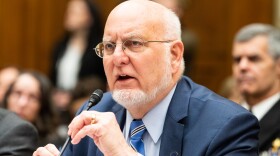
Sam Whitehead
Sam Whitehead is a reporter with GPB News.He has worked with “Here and Now,”NPR News, “State of the Re:Union,”WSKG News, andWRVO News. He also co-foundedWRFI Community Radio Newsin Ithaca, New York.He hasn’t won any awards yet.In his free time, he tries to become a better storyteller. He lives in Atlanta, Georgia.
-
Advances in medicine mean more people are living longer with HIV. But aging with HIV comes with increased health risks, and this growing population needs specialized care that's hard to find.
-
Mental health courts connect people to treatment and keep them out of jail. But they also often come at the price of a guilty plea, and participants say that feels like coercion.
-
A significant number of new HIV infections happen among Black women, and a health education effort in Atlanta wants to make sure Black women can access the HIV-prevention medicines known as PrEP.
-
An NPR analysis of COVID-19 vaccination sites in major cities across the Southern U.S. reveals a racial disparity, with most sites located in whiter neighborhoods.
-
The two Democratic challengers for the U.S. Senate believe focusing on health care during a pandemic will motivate voters for the Jan. 5 runoff. If both win, their party will control the U.S. Senate.
-
Atlanta is the latest big city to require face coverings when people are in public. Mayor Keisha Lance Bottoms is moving forward with the plan despite resistance from Georgia's governor.
-
After weeks of keeping a low profile, the CDC's Dr. Robert Redfield tells NPR that data will determine future recommendations for wearing masks or easing back on social distancing.
-
People with sickle cell disease aren't fueling the opioid crisis, research shows. Yet some ER doctors still treat patients seeking relief for agonizing sickle cell crises as potential addicts.
-
On Thursday, one of the world's largest oil paintings starts its trip to a new home. The immersive "cyclorama" puts viewers in the Battle of Atlanta, and is one of just a few of its kind in the U.S.
-
Wildfires continue to burn in five southern states. Some were intentionally set. Others were fueled by months of drought. Firefighters are struggling to get it all under control.








